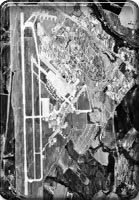
The Probable Influence of Air Reconnaissance on Strategy and Tactics
Flight Lieutenant C. J. Mackay
The collection of information about the enemy, insures not only an essential part of the protection of an army, but forms also the foundation on which plans and actions in war are based. The enemy must be continuously sought out and constant touch kept with him so that the fullest information as to his whereabouts and intentions may be obtained.
(Originally published in Military Review October-December 1922)
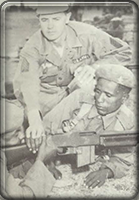
Cultural Engineering
Theodore R. Vallance
Charles D. Windle
In earlier days individual combat skills frequently played the decisive role in warfare. But war has grown in size and magnitude, evolving from conflict between individuals to battles between tribes, to combat between nations, to global warfare between alliances. Technology has developed more effective mechanisms for firepower, communications, and mobility. Man has had to mediate his skills through larger organizations, and by means of more complex equipment.
(Originally published in Military Review December 1962)
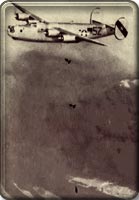
The Ethics of Bombing
Air Marshal Sir Robert Saundby, Royal Air Force, Retired
The subject of air bombardment is seldom discussed objectively and reasonably. It arouses all kinds of illogical antagonisms and emotional responses. Even when used against a leaking and derelict tanker aground near the Scillies, napalm bombs cause shudders of horror.
(Originally published in Military Review Februrary 1968)
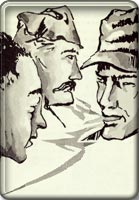
Interpreter--or Filter?
Colonel Wolfred K. White, United States Army
The argument frequently has been advanced that citizens of the United States need no language other than their mother tongue. The rationale is that the people of less powerful nations will learn English in order to communicate with the citizens of a great power. Such a thesis may have been valid during periods of isolation before World War II, but, in light of the United States present worldwide military and economic commitments, it can no longer be supported.
(Originally published in Military Review Februrary 1968)
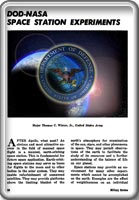
DOD-NASA: Space Station Experiments
Major Thomas C. Winter, Jr., United States Army
For the first time ever man has stepped beyond his planet and revealed us to ourselves as 'riders on the earth together,' bound inseparably on this one bright, beautiful speck in the heavens, so tiny in the universe and so incomparably welcoming as a home for man. In this new age of 'firsts,' even the goal of a just and lasting peace is a 'first' we can dare to strive for. We must achieve it. And I believe we can achieve it.
~ President Richard M. Nixon
(Originally published in Military Review February 1970)
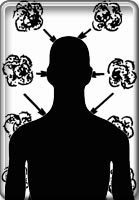
Ethnic Weapons
Carl A. Larson
Surrounded with clouds of secrecy, a systematic search for new incapacitating agents is going on in many laboratories. The general idea, as discussed in open literature, was originally that of minimal destruction. Psychochemicals would make it possible to paralyze temporarily entire population centers without damage to homes and other structures.
(Originally published in Military Review November 1970)
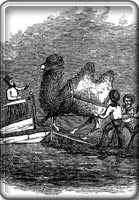
The United States Army Camel Corps 1856-66
John Shapard
An American camel corps was initially suggested by Major George Crosman in 1837. The idea was ignored at the time, but, in 1848, two events combined to resurrect the camel project. The Treaty of Guadalupe Hidalgo, signaling the United States’ victory over Mexico, added over one-half million square miles of new lands, including the vast deserts of the Southwest, to the country’s real estate.
(Originally published in Military Review August 1975)
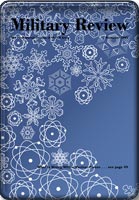
What is Wrong With a Nuclear Freeze?
Captain David H. Petraeus, US Army
While the United States recognizes that there could be no winner in nuclear war, to ensure effective deterrence it is paramount that the Soviet leadership understands this as well. This is especially important because the Soviet buildup in the 1970s: ... has belied the action-reaction theory of the arms race which holds that the Soviet military build-up is always a response to increases in American defense spending. Unilateral US restraint during the 1970s, which was tantamount to a freeze, was not met with similar Soviet restraint. On the contrary, the Soviets built far greater numbers of ICBMs than would be necessary for a deterrent capability and complemented their strategic offensive capabilities with the development of massive strategic defenses..
(Originally published in Military Review November 1983)
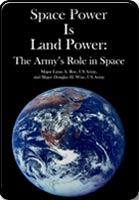
Space Power is Land Power: The Army's Role Space
Major Linas A. Roe, US Army,
and Major Douglas H. Wise, US Army
The US Army has several initiatives under way to determine requirements for using the new high ground-space. Although once a leader in space-related research, the authors feel the Army is currently behind the other services in this area, an area that may prove vital to success in fu{ure cortflict.
(Originally published in Military Review January 1986)

Genghis Khan and 13th-Century AirLand Battle
Captain Dana J. H. Pittard, US Army
An Army’s Operational Concept is the core of its doctrine. It is the way the Army fights its battles and campaigns, including tactics, procedures, and organizations…. The concept must be broad enough to describe the operations in all anticipated circumstances. Yet it must allow sufficient freedom for tactical variations in any situation. It must also be uniformly known and understood.1
(Originally published in Military Review July 1986)
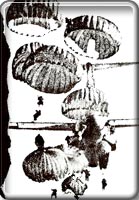
Operation Urgent Fury and Its Critics
Captain Daniel P. Bolger, U.S. Army
On 25 October 1983, US military forces, with several Caribbean allies, intervened on the island of Grenada. Operation Urgent Fury was initiated to protect the lives of US students, restore democratic government and eradicate Cuban influence on the island.
(Originally published in Military Review July 1986)
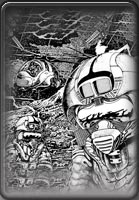
Space and Power Projection
Commander Dale R. Hamon, US Navy, Retired, and
Lieutenant Colonel Walter G. Green III, US Air Force, Retired
Space uniquely provides the US forces essential capabilities that will mean the difference between mission fiailure and mission success.
(Originally published in Military Review November 1994)
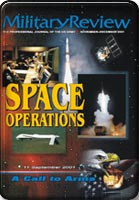
Military Review - Space Operations
Military Review Staff
This issue of Military Review was originally planned with space operations as its theme... Space has long intrigued the military imagination. Since the Gulf War, space has grown tremendously important to U.S. warfighters. Now, perhaps more than ever before, especially in light of combat operations in southern Asia, space-based operations are vital to the success of U.S. forces.
(Military Review November- December 2001 edition originally published on 11 September 2001)
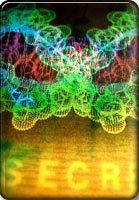
Ultramicro, Nonlethal, and Reversible: Looking Ahead to Military Biotechnology
Colonel Guo Ji-wei, The People’s Liberation Army, China, and Xue-sen Yang
Military biotechnology has not yet become an instrument of military power. The laws, rules, and essential qualities of modern biotechnology have not yet been clarified. We cannot use and control it at our will. Progress is still needed in supporting areas such as military information technologies and material science. Even so, the increased pace of development of modern biotechnology tells us that the day on which we will begin to make full military use of its advantages is not too far off.
(Originally published in Military Review July-August 2005)